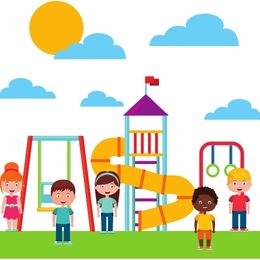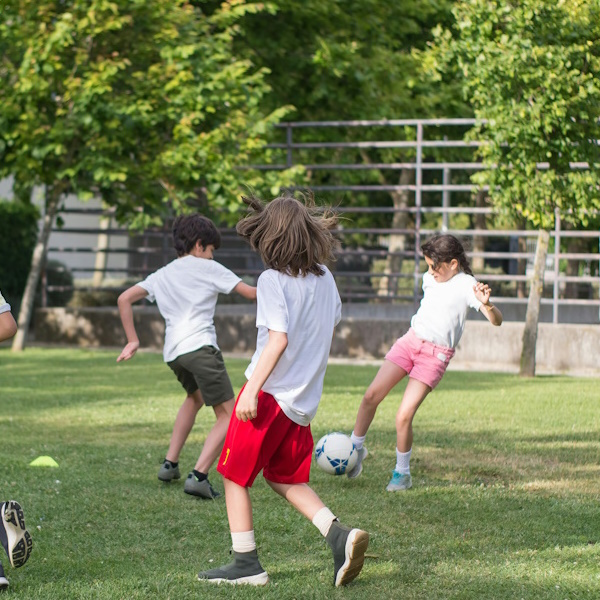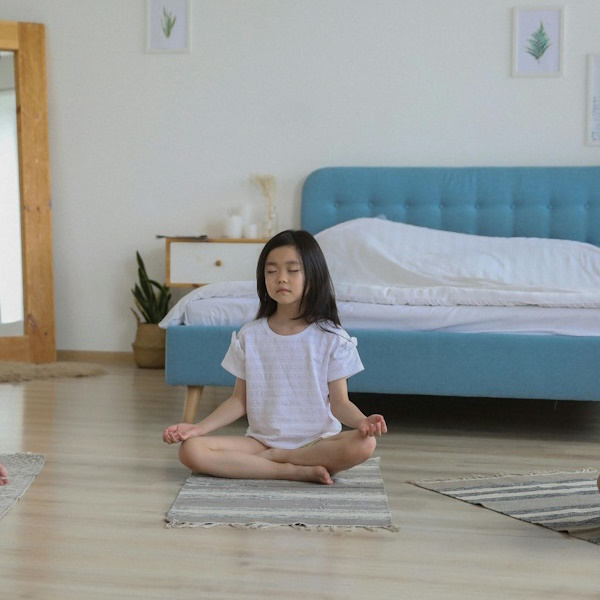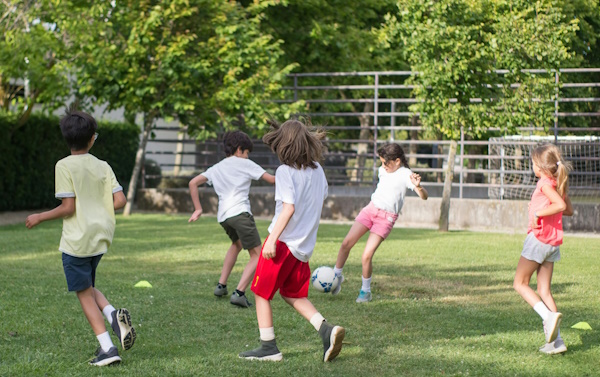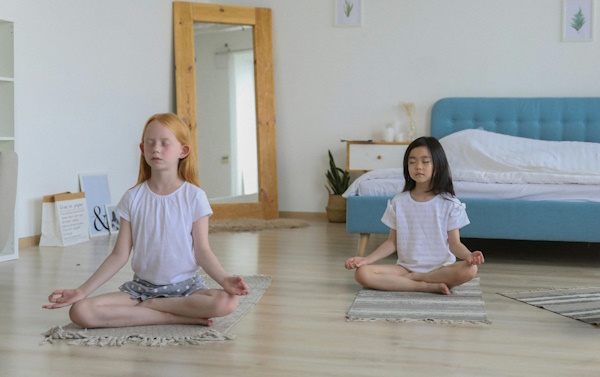Unlocking the Benefits of Physical Activity for Kids: A Guide to Healthier Minds and Bodies
Physical activity isn't just a way to burn off steam for kids; it's a cornerstone of healthy development. From improving physical health to boosting mental well-being, the benefits of physical activity for children are vast and varied. Whether it's a game of tag in the backyard or a structured sports program, getting your kids moving is crucial for their overall growth.
But it's not just about the physical perks. Engaging in regular physical activity can enhance a child's cognitive skills, social abilities, and even academic performance. It's a powerful tool that can set the foundation for a lifetime of health and happiness. So, let's dive into why encouraging your kids to be active is one of the best investments you can make in their future.
Physical Health Benefits
When it comes to children's health, physical activity plays a pivotal role that cannot be overstated. From enhancing cardiovascular fitness to strengthening muscles and bones, the benefits are far-reaching. Encouraging your kids to engage in regular exercise helps lay down the foundation for a healthy lifestyle that can follow them into adulthood.
Key Health Improvements
Regular physical activity boosts cardiovascular health by improving the efficiency of the heart and lungs. This leads to better endurance and energy levels, allowing your child to stay active longer without fatigue. Additionally, exercise plays a crucial role in maintaining a healthy weight. In an era where childhood obesity is a growing concern, incorporating physical activities into your child's daily routine can be a game-changer.
Strengthening Muscles and Bones
Strength isn't just for adults. Kids need strong muscles and bones to carry them through their active days and growth spurts. Weight-bearing exercises, such as running, jumping, or even playful activities like climbing and wrestling, are excellent for promoting bone density and muscle strength. These activities help in preventing injuries and conditions such as osteoporosis later in life.
Coordination and Balance
Physical activities not only contribute to brute strength but also enhance coordination and balance. Whether it's riding a bike, skating, or participating in team sports, these activities challenge and improve your child's ability to coordinate movements and maintain balance. This development is crucial, playing into their agility and preventing falls and related injuries.
Physical activity is an integral part of a child's development, offering numerous benefits that extend well beyond the playground. Through regular exercise, children not only improve their physical health but also set the stage for healthy habits that can last a lifetime.
Mental Well-being Benefits
Physical activity is more than just a path to physical health; it's a gateway to improving children’s mental well-being. When your kids engage in regular physical activities, they experience a remarkable boost in their mood and mental health. This is because physical exercise triggers the release of endorphins, often known as the body’s natural mood elevators.
Regular physical activity has been shown to decrease symptoms of depression and anxiety in children. It provides a constructive outlet for releasing pent-up energy and stress, leading to a calmer, more balanced emotional state. Furthermore, engaging in sports or physical activities can help build resilience, teaching kids how to cope with challenges and bounce back from setbacks.
Another vital aspect of mental well-being linked to physical activity is improved self-esteem. As children learn new skills, master a sport, or simply see improvement in their physical capabilities, their confidence and self-image improve significantly. This sense of achievement fosters a positive self-view, which is crucial during the formative years.
Social interaction through physical activities also plays a critical role in mental health. When children participate in team sports or group activities, they develop essential social skills such as teamwork, communication, and empathy. These experiences contribute to a sense of belonging and connectedness, which is vital for psychological well-being.
Moreover, physical activity is linked to enhanced cognitive functions. It stimulates brain growth and neural connections, leading to improved concentration, memory, and academic performance. This cognitive boost not only benefits children academically but also enhances their problem-solving skills and creativity, further contributing to overall mental health and well-being.
Incorporating physical activities into your child’s daily routine can therefore serve as a powerful tool in nurturing a healthy mind alongside a healthy body. Encouraging your child to stay active is not just about fostering physical health but also about supporting their happiness, mental resilience, and emotional balance.
Cognitive Skills Enhancement
Engaging your child in regular physical activity doesn't just benefit their physical health; it's also a crucial component in enhancing their cognitive skills. Studies have shown that children who are more active exhibit better attention spans, superior memory retention, and more refined problem-solving skills compared to their less active peers.
Physical activity stimulates brain growth and development in several key areas. For instance, exercises that require coordination and balance can improve spatial awareness and executive function. This means your child becomes better at organizing, planning, and executing tasks, which are essential skills not only in academics but in daily life as well.
Moreover, the mental stimulation that comes from participating in sports or other physical activities can lead to significant academic achievements. Here's a quick look at how regular exercise impacts cognitive functions:
| Impact of Exercise | Cognitive Skill Improved |
|---|---|
| Enhanced concentration | Attention and focus |
| Improved memory | Retention and recall |
| Better problem-solving | Logical thinking and reasoning |
| Increased neural activity | Brain growth and development |
Incorporating a variety of physical activities into your child's routine can bring about these cognitive benefits. Whether it's structured sports, dance classes, riding a bike, or simply playing tag with friends, each activity contributes to the development of their cognitive abilities in unique ways.
Remember, the key to maximizing the cognitive benefits of physical activity is consistency and variety. Encouraging your child to remain active on a regular basis, combining both solo and group activities, can foster an environment where cognitive development is continually supported and nurtured.
Social Abilities Improvement
When you engage your child in physical activities, you're not just enhancing their physical health. You're also significantly improving their social abilities. Team sports and interactive games offer a platform for children to develop critical social skills. These activities teach them about teamwork, communication, and understanding others' emotions.
Team sports, for instance, require players to work together towards a common goal. This fosters a sense of community and belonging among participants. Your child learns the importance of cooperation and develops the ability to work effectively with others. Additionally, physical activities often involve following rules and accepting decisions, teaching respect for authority and peers.
Interactive games and sports also offer unique opportunities for your child to navigate social interactions. They learn to communicate effectively, both verbally and non-verbally. This communication helps them express their ideas, listen to others, and negotiate conflicts. As they interact with peers, they sharpen their empathy by observing and responding to others' feelings and needs.
Furthermore, regular participation in physical activities can boost your child's self-confidence. As they achieve their goals and improve their skills, they become more confident in their abilities. This newfound confidence can translate into more positive interactions with peers, making it easier for them to make friends and fit in.
Physical activities also expose children to a diverse group of individuals, promoting inclusivity and tolerance. They learn to appreciate differences and build friendships based on mutual respect and understanding. Whether it's through a game of soccer in the park or a coordinated dance class, physical activities provide a rich soil for nurturing social skills that last a lifetime.
Incorporating a variety of team sports and interactive games into your child's routine can have a profound effect on their social development. Through these activities, they're not just playing; they're learning valuable life skills that will aid them in navigating the complexities of social interactions now and in the future.
Academic Performance Boost
Physical activity isn't just about keeping your child's body healthy; it also gives their academic performance a significant boost. Research shows that students who engage in regular physical activity tend to have better grades, higher test scores, and a more positive attitude toward school. Let's dive deeper into how staying active can pave the way for academic success.
When your child engages in physical activity, it increases blood flow to the brain, which is rich in oxygen and nutrients vital for brain health. This enhanced circulation promotes the growth of new brain cells and the connections between them, crucial for learning and memory. Moreover, exercise triggers the release of chemicals in the brain that improve mood and clear thinking, making it easier for children to focus in class and retain information.
Here's a quick overview of the impact of physical activity on academic performance:
| Benefit | Description |
|---|---|
| Improved Concentration | Regular physical activity helps sharpen focus and lengthens attention spans, essential for academic success. |
| Enhanced Memory | Exercise boosts memory retention, aiding in better recall during tests and exams. |
| Better Grades | Studies correlate regular physical activity with higher GPAs and standardized test scores. |
Incorporating physical activities into your child's daily routine can range from structured sports to simple playtime outside. The key is consistency and ensuring that the activities are enjoyable to keep your child motivated. Encouraging brief activity breaks during homework sessions can also be beneficial, allowing for a mental reset and improving overall productivity.
Remember, every child is unique, so it's important to find the right balance and types of physical activities that resonate with them. With the right approach, you're not just fostering a healthier lifestyle but also setting the stage for academic excellence.
Conclusion
Embracing physical activity isn't just about staying active; it's a foundational step toward nurturing your child's overall development. From boosting mental health and cognitive functions to enhancing social skills and academic performance, the benefits are profound and far-reaching. By integrating a variety of physical activities into your child's daily routine, you're not only promoting a healthier lifestyle but also paving the way for their success in and out of the classroom. Remember, the goal is to make physical activity a fun, enjoyable part of their life—one that they'll carry into adulthood. So, let's get moving and set the stage for a brighter, healthier future for our children.
